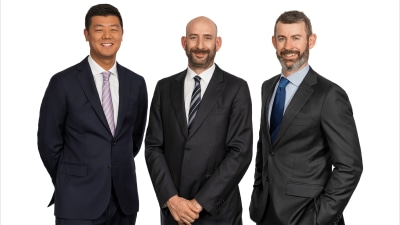It’s not easy being green


In response to the climate crisis the economy shows clear signs of shifting from “brown” to “green”. Driving this secular change, companies lower their carbon footprint by winding down or divesting carbon-intensive activities. These decarbonisation strategies can have meaningful — and sometimes contradictory — effects on companies’ sustainability credentials and financial strength. For a complete understanding of such corporate activity a new set of questions must be answered.
Shades of complexity: the different paths from brown to green
In the context of sustainability, analysing a company’s carbon footprint and intensity is the most common way to assess a company’s decarbonisation trajectory. There are multiple ways to improve these metrics: for example, companies can shift from using fossil fuels to renewable energy sources, or they can reduce the carbon content of manufacturing inputs such as steel and building materials. However, the focus of the framework we have created is on two further, related ways of decarbonising: either winding down or divesting/demerging carbon-intensive activities rooted in the old ‘brown’ economy.1
Such a framework is needed because assessing the financial and sustainable impact of a company either winding down or divesting itself of a carbon-intensive activity is complex. For example, a company can quickly cut its carbon footprint via a divestment, but if that ‘brown’ activity goes on to thrive in the hands of its new owners the environment does not benefit in any way.
Optically the divestment appears quite positive, at least for the individual company’s carbon footprint. However, by delivering the carbon-intensive activity into the hands of a proponent, the decision has a net negative impact on the decarbonisation of the planet as a whole. As such, before we reward a company for reducing its carbon footprint through the divestment of polluting assets, it’s important to know where those assets end up. From a climate change point of view, we want to understand what an action means for the overall decarbonisation of the economy compared to, say, simply winding down that activity.
Then there is the financial assessment. As investors we are compelled to determine the materiality of any financial impact divestment of carbon-intensive activities will have. We can then compare this to the impact of winding them down. In some cases, divestment could reduce the carbon intensity of the company’s operations and benefit the environment but be detrimental to its financial profile or vice versa.
A holistic approach that respects the principles of the investment process
For the fundamental assessment, we follow a pretty well-trodden path of financial analysis. As described in the detailed framework, we determine the impact of the divestment or wind down on transition risks, cashflows, debt and enterprise value, scoring accordingly. This helps us determine how much volatility contribution we can take in the name. The net effect will influence both Credit and ESG scores.
For the sustainability assessment, it is not just a matter of subtracting the ‘brown’ activity’s carbon emissions from that of the parent company. Instead, we aim to determine how responsible the wind down or divestment is in the context of the wider economy. We do this by analysing the ultimate impact on society and the environment of the parent company’s chosen course of action. We then fold that conclusion into the context of the parent company’s other sustainability activities, assessing the impacts on a holistic basis and with a forward-looking view. This analysis paints a much more complete picture that conveys the earnestness with which the company is decarbonising and thus allows us to assign more accurate sustainability scores.
Overall, the framework reflects a holistic approach that takes into account the wider impact of a company’s strategy for decarbonising its assets. At the same time, it fully respects the principles of the investment process.
To read more about the analytical framework click here.
1 For simplicity’s sake, we refer to divestments and demergers in the rest of this article and more detailed framework using the single term ‘divestments’ as the key concept of withdrawing from the carbon-intensive activity is common to both. We will separate the two concepts when necessary as part of the analysis that the framework describes.
The value of investments and income from them may go down as well as up, and you may not get back the original amount invested.
For Wholesale clients only. All distribution of the products in Australia is carried out by Federated Investors Australia Services Pty Ltd which holds an Australian Financial Services Licence (No. 433831).
Federated Hermes Investment Funds plc (“FHIF”) is an open-ended investment company with variable capital and with segregated liability between its sub-funds (each, a “Fund”). FHIF is incorporated in Ireland and authorised by the Central Bank of Ireland (“CBI”). FHIF appoints Hermes Fund Managers Ireland Limited (“HFMIL”) as its management company which is authorised and regulated by the CBI. Registered address: The Wilde, 53 Merrion Square, Dublin 2, Ireland.
Recommended for you
A healthy lifestyle doesn’t have to be a question of all or nothing. If you can take small, consistent steps to improve ...
The world’s electricity grids are large, but they are about to become giants with the fundamental shift to the electrifi...
In today’s dynamic world, asset owners and asset managers are continually having to adapt to changing market conditions.
While investing with an ESG focus presents a huge opportunity, it also presents a significant challenge. Consistent and quality data is at the forefront of this challenge. Coupled with increasing guidelines and regulations, obtaining an accurate picture of ESG investments remains a tortuous journey. In this environment, it is important to be informed writes Philippe Tassin, Head of Asset Owner and Manager Client Lines APAC, at BNP Paribas, following his recent panel session at the Fund Business Investment Data & Technology Summit in Australia











Add new comment